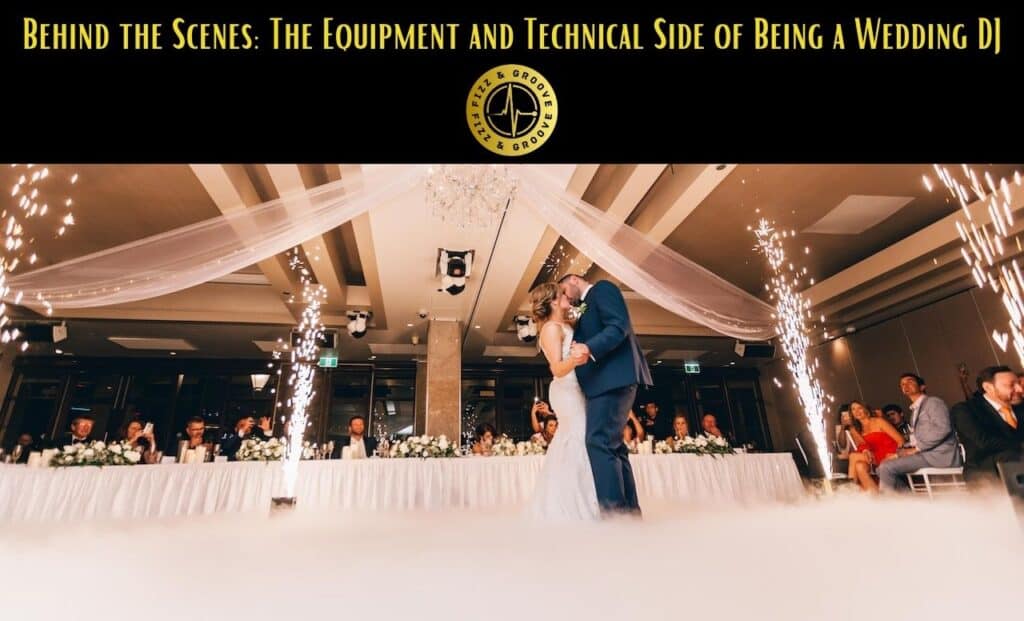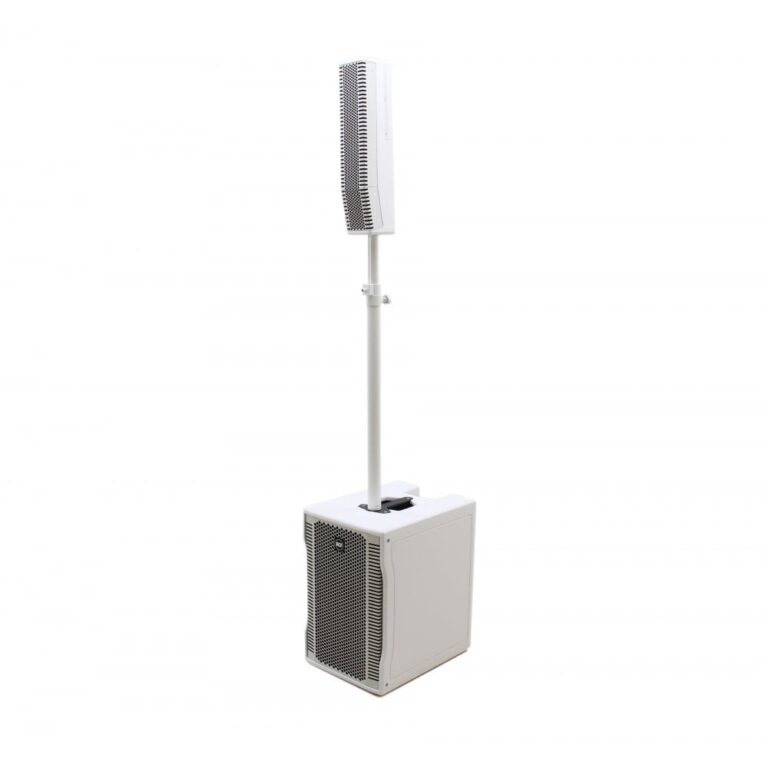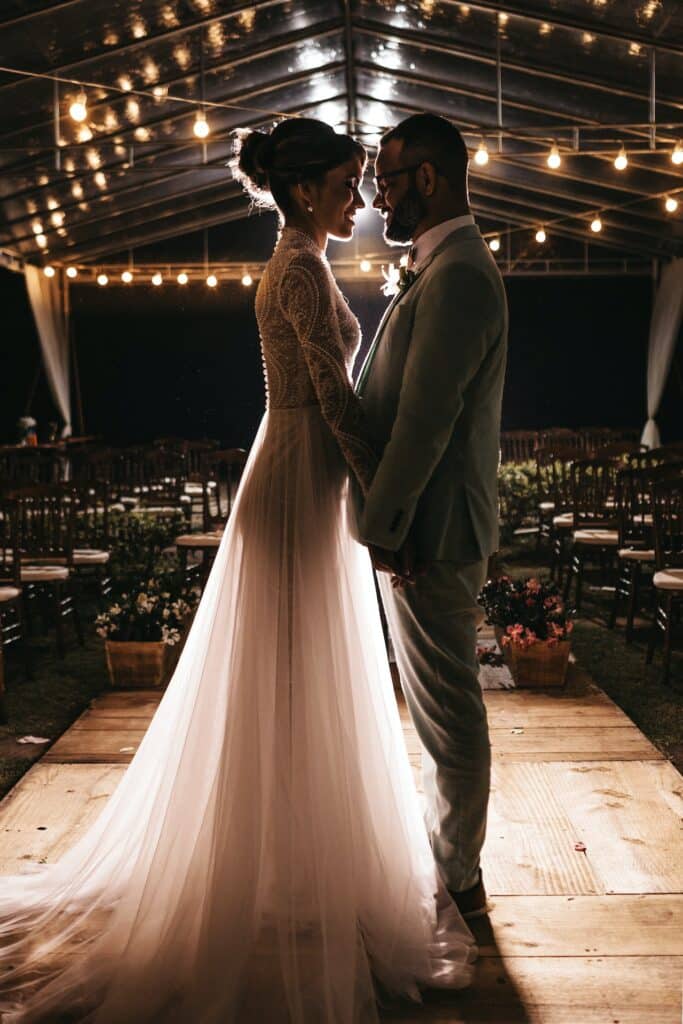Behind the Scenes: The Equipment and Technical Side of Being a Wedding DJ
When it comes to wedding music, one of the most popular options is hiring a DJ.
While it may seem like a simple task of just picking great songs and pressing play, the reality is that being a wedding DJ requires much more than that.
From setting up the right equipment to planning the flow of the night and troubleshooting technical difficulties, there are many aspects that go into making a successful wedding reception. In this article, we will take a closer look at the equipment and technical side of wedding DJing.

Essential Equipment for a Brilliant Wedding DJ
Sound Equipment
One of the most important pieces of equipment for any wedding DJ is the sound system. Without a good sound system, the music won’t sound as good, and the dance floor won’t be as lively.
Wedding DJs need to ensure that they have the right speakers, amplifiers, and subwoofers for the size of the venue they will be playing in. They also need to make sure that they have the appropriate cables, adapters, and mixers to connect everything together.
Anyone can spend a few hundred pounds on a set of speakers, but only years of experience will guide you to getting the right tools for the job. Firstly, you don’t want passive speakers, because then you have to buy an amp. If the amp blows, or a fuse in the amp goes, then you have no speakers for the night and the party is ruined. Instead you would go for active powered speakers, where the speaker is powered and amplified in itself. If one speaker goes, at least you have the other one.
You are going to want speakers that aren’t just loud, but also provide superb, crisp sound quality at high volumes. Brands such as RCF and FBT rather than cheap knock offs

Lighting
Lighting is another essential aspect of wedding DJing. A good lighting system can help set the mood and create a fun atmosphere on the dance floor. Wedding DJs should consider investing in LED lights, moving head lights, and uplighters to create a dynamic lighting experience. They also need to ensure that they have the right stands and trusses to mount the lights and create the desired effects.
Again, anyone can just buy a set of DJ lights and put them on sound mode. A professional DJ will have a DMX controller that they have personally programmed scenes into so that they can have white lighting for the first dance. This helps to create a nice atmosphere and prevents crazy lighting from ruining the photos and annoying the photographer.
I have 5 scenes programmed into my DMX controller:
A white “first dance” scene.
An early night dance scene, with colours slowly changing and moving heads
A faster version of this for later in the night or during dance.
A strobe setting for big drops in big party songs (Freed from desire etc)
A pulsing pink and purple effect I use during certain specific moments.
An amateur DJ wouldn’t even know what a DMX controller is, let alone know how to program one, so you would just end up with crazy sound reactive lighting throughout your first dance and for the rest of the night,

Planning of the Wedding Reception
One of the most critical tasks for a wedding DJ is planning the reception. They need to work closely with the bride and groom to understand their music preferences and create a playlist that will keep everyone entertained.
Wedding DJs should also be familiar with the order of events during a typical wedding reception, including the entrance of the bridal party, first dance, and cake cutting. They need to ensure that the music fits seamlessly with each part of the evening and helps to create a memorable experience for the happy couple and their guests.
A phone chat before the wedding is key, knowing when the room is going to clear because all of the guests are going outside to get some pizza can prevent you from building up to a massive anticlimax or wasting the best floor fillers on a half empty room.
Knowing that the bridal party loved a specific song on the hen do will make all the difference when you pick out that song at the very moment they hit the dance floor.
Being a DJ is as much about psychology and knowing how to get people going at the right times as it is about musical choice.
Understanding the Flow of the Night
A successful wedding reception requires a DJ who can read the crowd and adjust the music accordingly. Wedding DJs need to be aware of the energy level on the dance floor and understand when to switch up the music to keep people dancing.
They should also be able to seamlessly transition from one song to another and create a flow that keeps the party going.
The ability to MIX is something that a DJ picks up over a number of years and never stops learning. To put it simply, experience and time in the game leads to skills and confidence in ability that you cannot learn in a few weeks or months.
Technical Difficulties and How to Plan for Them
Even with the best equipment and planning, technical difficulties can still occur. Wedding DJs need to be prepared for any potential issues and have backup plans in place. This can include bringing extra equipment, such as backup speakers and cables, and having a backup playlist ready in case of any issues with the primary system.
I personally carry spare extra long extension leads, a spare laptop, extra cables and lots of other spare pieces of equipment just in case something goes wrong.
You wont get that with a D.I.Y job.
